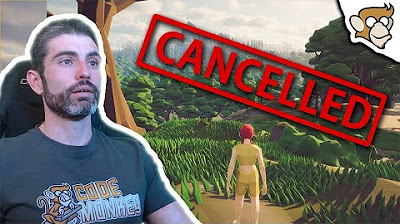5 Solo Game Dev Mistakes You MUST Avoid (My Experience!)
Summary
TLDRThomas Brush, a solo game developer, shares five emotional mistakes he made during his five-year journey of creating a game. These mistakes include not trusting his gut, trusting it at the wrong times, taking funding too early or too late, and working in a panic. Brush emphasizes the importance of emotional resilience, trusting your instincts when appropriate, and finding a balance with funding. He also suggests seeking support from a trusted group of advisers to help navigate challenges, as these emotional hurdles often outweigh technical ones in solo game development.
Takeaways
- 😀 Trusting your gut is important when you're passionate about a core idea, but be mindful of timing and context.
- 😀 Emotional mistakes are often more detrimental than technical ones in solo development, so keep your emotions in check.
- 😀 Don't trust your gut when you're frustrated, anxious, or insecure about your project—seek advice from trusted individuals instead.
- 😀 It's easy for solo developers to fall into feature creep when feeling insecure about the game's success—avoid this.
- 😀 Avoid taking funding too early in the development process—wait until you have a solid demo and have run out of resources.
- 😀 Don't undervalue your work or accept lowball offers—your time and effort are worth more than you think.
- 😀 Taking funding too early can limit your ability to negotiate or maintain creative control—wait until the product is stronger.
- 😀 Be mindful of the timing when seeking funding—find the balance between too early and too late for a successful pitch.
- 😀 Waiting too long to seek funding can lead to burnout and unnecessary pressure—seek support when you start running out of steam.
- 😀 Avoid working in a panic or frenzy; maintain a clean and organized work environment to sustain creativity and productivity.
Q & A
Why is trusting your gut considered an important part of game development for solo developers?
-Trusting your gut is essential when you have a deep passion for an idea. It helps keep you motivated, especially during tough times, ensuring you finish the game. It's about listening to your inner drive and belief in a unique concept, even if it's not a commercially viable idea.
When is it not a good idea to trust your gut in game development?
-It’s not a good idea to trust your gut when you're feeling frustrated, angry, insecure, or anxious. Decisions made during such emotions may lead to feature creep or other poor choices. It’s better to consult advisors when you’re in such states.
How can emotional mistakes impact a solo developer compared to technical ones?
-Emotional mistakes, such as second-guessing decisions or working in a panic, can be more detrimental than technical errors. They affect motivation, creativity, and overall productivity, potentially leading to burnout and unfinished projects.
Why do solo developers often take funding too early, and what are the risks?
-Solo developers might take funding early due to fear, loneliness, or lack of validation. This can lead to giving away too much of the game’s rights or not getting enough for their time and effort. It’s crucial to wait until the project is solid before seeking financial backing.
What is the best time for a solo developer to seek funding?
-The best time to seek funding is when the game has a solid demo, and you have exhausted your personal resources and energy. This ensures you can pitch a product that has real value and may attract a higher investment.
How can solo developers avoid waiting too long to seek funding?
-Solo developers should recognize when their progress is stagnating due to a lack of resources and start seeking funding when they feel that the project has potential but can’t move forward without external support.
Why is waiting too long for funding a problem for solo developers?
-Waiting too long can prevent developers from being able to work full-time on the project, which can lead to burnout or abandoning the project. At some point, it becomes clear that full-time commitment is necessary to complete the game.
How can working in a panic negatively affect a solo developer's productivity?
-Working in a panic can hinder creativity and lead to inefficient work. Solo developers often try to rush through tasks to avoid running out of time or money, but this approach leads to poor decision-making and burnout.
What advice does Thomas give to solo developers when it comes to managing their workspace and work-life balance?
-Thomas advises keeping your workspace clean and organized, maintaining a healthy schedule, and surrounding yourself with a supportive network. It’s important not to work in a frenzy, and instead, have a balanced approach to creativity and productivity.
How can advisors help a solo developer make better decisions during the game development process?
-Advisors can provide critical perspectives, especially when a solo developer is unsure whether to trust their gut. They can guide developers on when to slow down or push forward and help prevent emotional burnout by offering practical advice and support.
Outlines

このセクションは有料ユーザー限定です。 アクセスするには、アップグレードをお願いします。
今すぐアップグレードMindmap

このセクションは有料ユーザー限定です。 アクセスするには、アップグレードをお願いします。
今すぐアップグレードKeywords

このセクションは有料ユーザー限定です。 アクセスするには、アップグレードをお願いします。
今すぐアップグレードHighlights

このセクションは有料ユーザー限定です。 アクセスするには、アップグレードをお願いします。
今すぐアップグレードTranscripts

このセクションは有料ユーザー限定です。 アクセスするには、アップグレードをお願いします。
今すぐアップグレード5.0 / 5 (0 votes)






